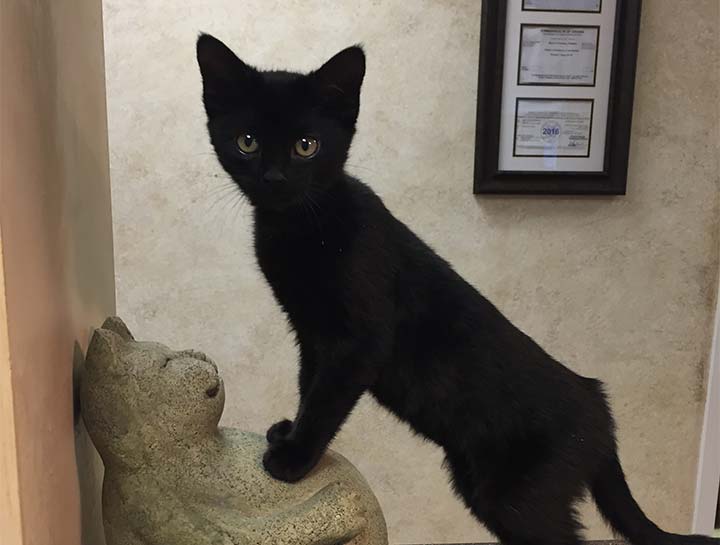Cat Behavior Counseling
Common pet behavioral problems and treatment plans.
Cats can suffer from a multitude of ailments ranging from severe phobias to aggressions. The first step in controlling these issues is to understand the "what and why" of each situation. At Fancy Paws Cat Clinic, we strive to help our clients learn the real reasons for their pet's behavior and then find realistic options for a treatment plan.
Most importantly, if your pet has developed an unpleasant behavior, the first thing we need to do is rule out underlying health issues. Your cat is missing the litter box? This could mean a urinary tract infection. Sudden change in personality? Perhaps it's related to abnormal thyroid hormone levels.
During your pet's behavior appointment, we will review your pet's history, provide a physical evaluation and diagnosis, and work with you to develop a treatment plan.
Common Cat Behavioral Problems
-
Inappropriate urination or defecation
-
Aggression toward people or other animals
-
Compulsive disorders (repeatedly performing a behavior to the extent that it interferes with everyday life) like tail chasing, licking, spinning, pacing, chewing
-
Self-mutilation
Types of Treatment Plans
-
Environmental changes
-
Medication
-
Positive reinforcement
-
Medical recommendations
How can a veterinarian help me?
A veterinarian is professionally trained in assessing behavior problems. We can help diagnose the specific problem and recommend appropriate action. In many cases, a behavior problem will be one we've seen before. And for many problems, there are tried and true remedies. For example, a different litter type or an extra pan in the house may help with cases of inappropriate elimination in cats. Do be prepared to try different approaches to the problem – not every pet is the same!
For cases that can not be managed despite appropriate testing and treatment, we recommend seeking the services of a board certified veterinary behaviorist.
Do some behavior problems require medication?
We will always try environmental or behavioral modification first. However, there are some cases where medication, used in conjunction with behavior modification, can help to manage a problem. Of course, we'll discuss the pros and cons of any treatment with you so you can better choose what's best for your pet.
Call us at (703) 723-9940 or request an appointment online to discuss your pet's behavior needs.

